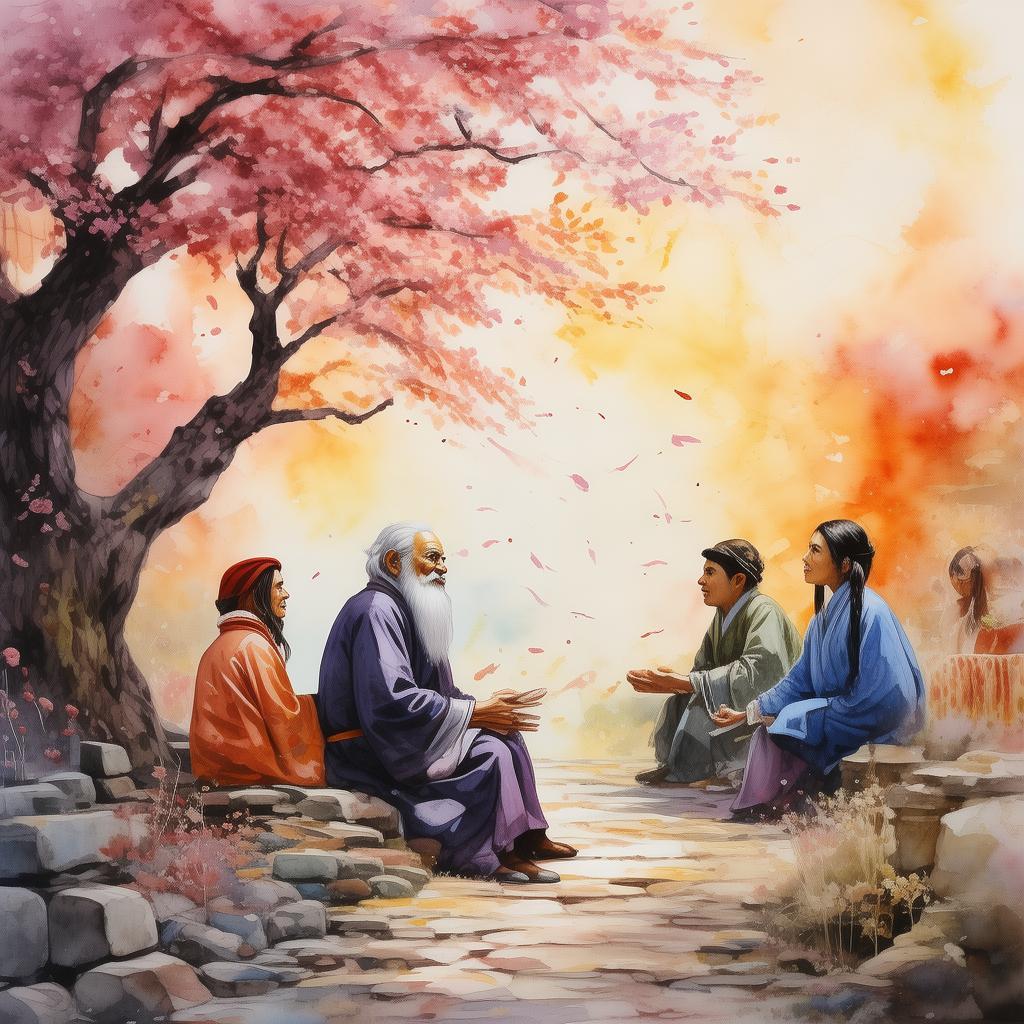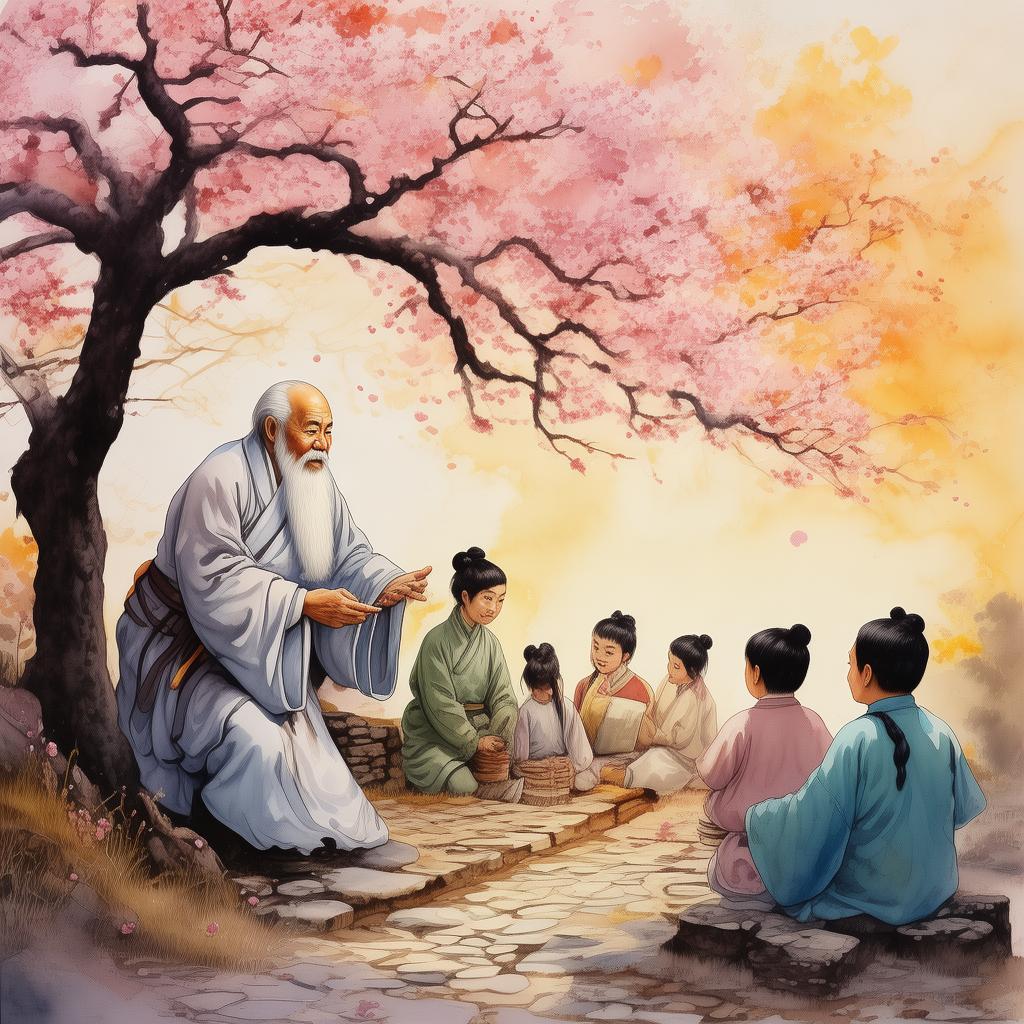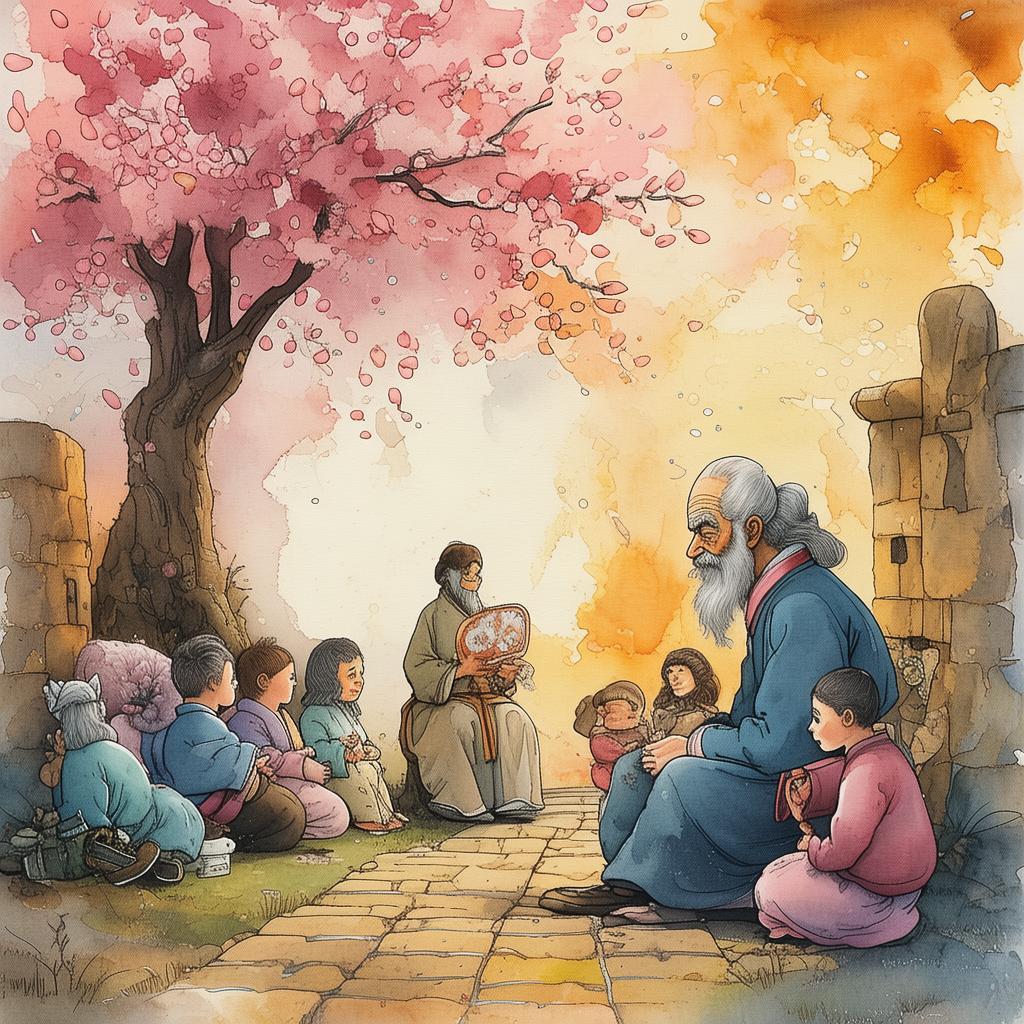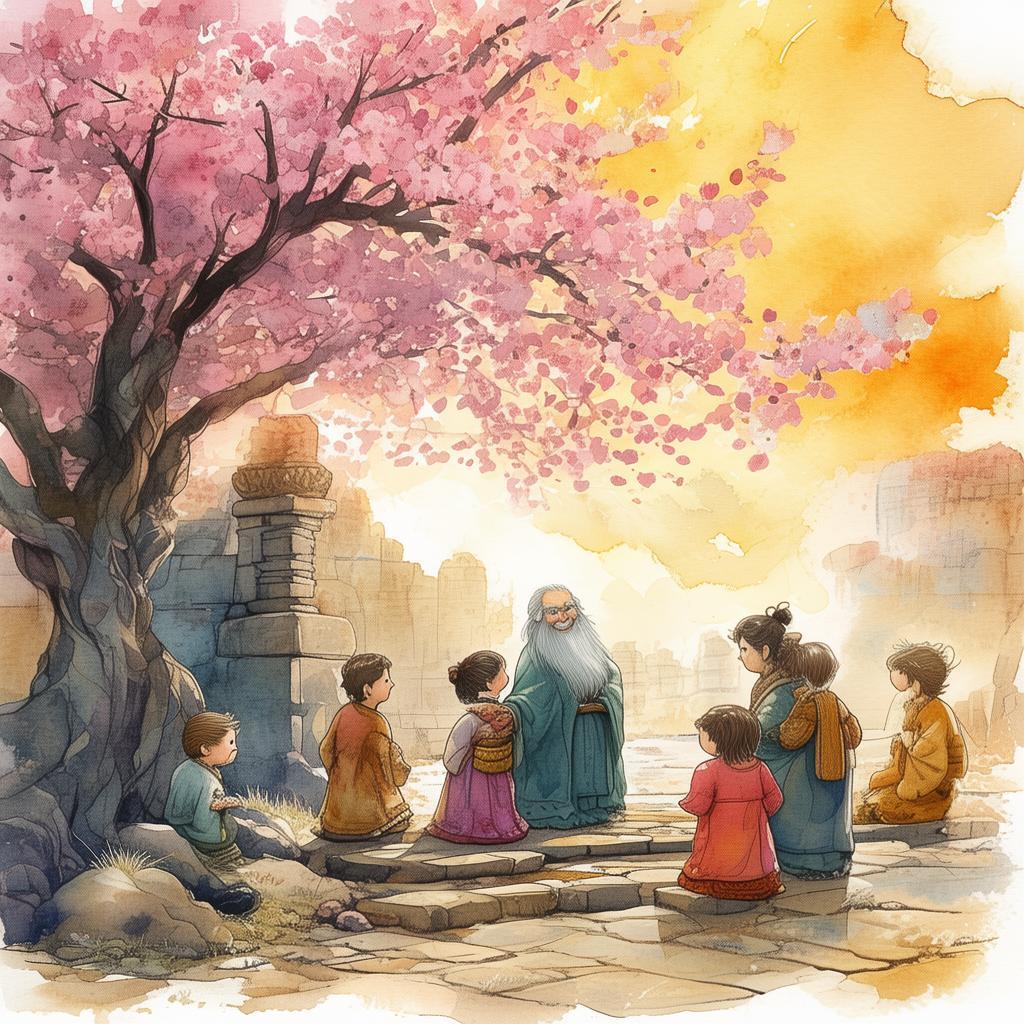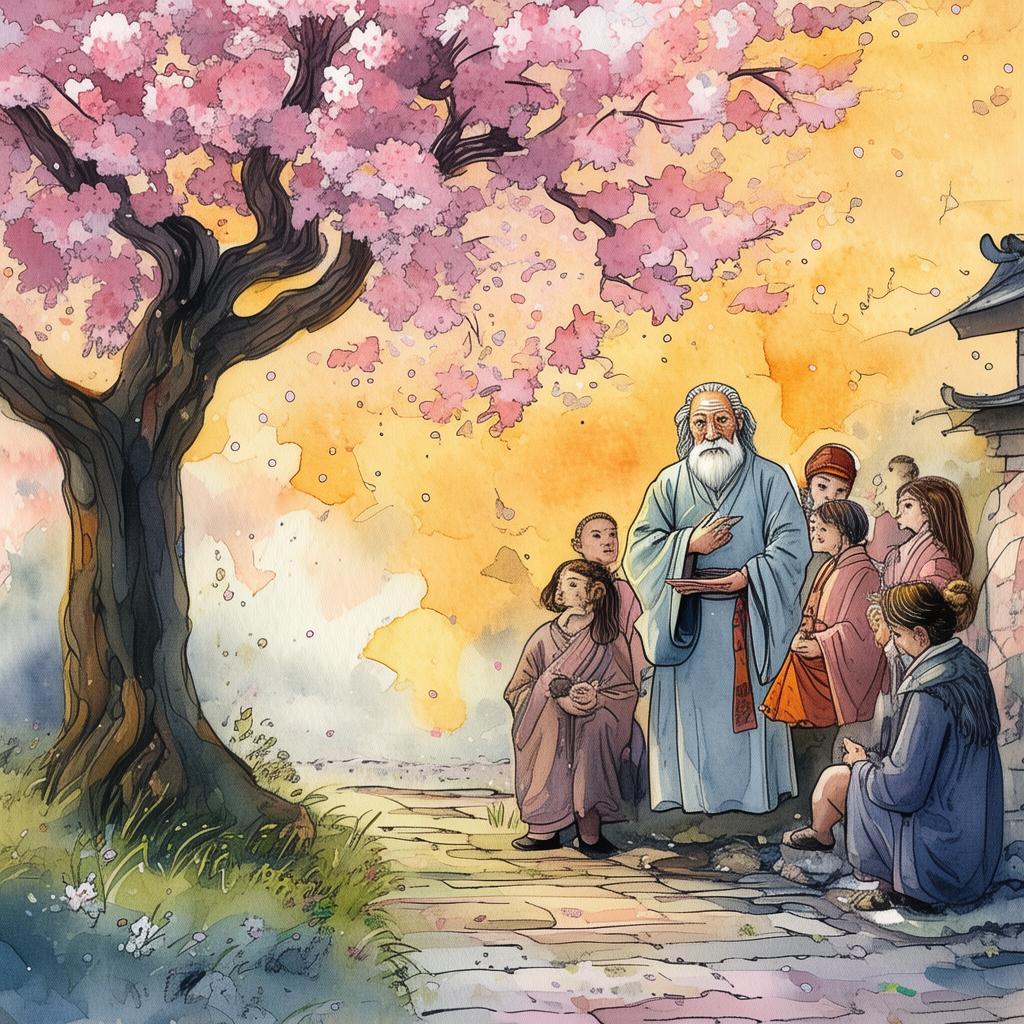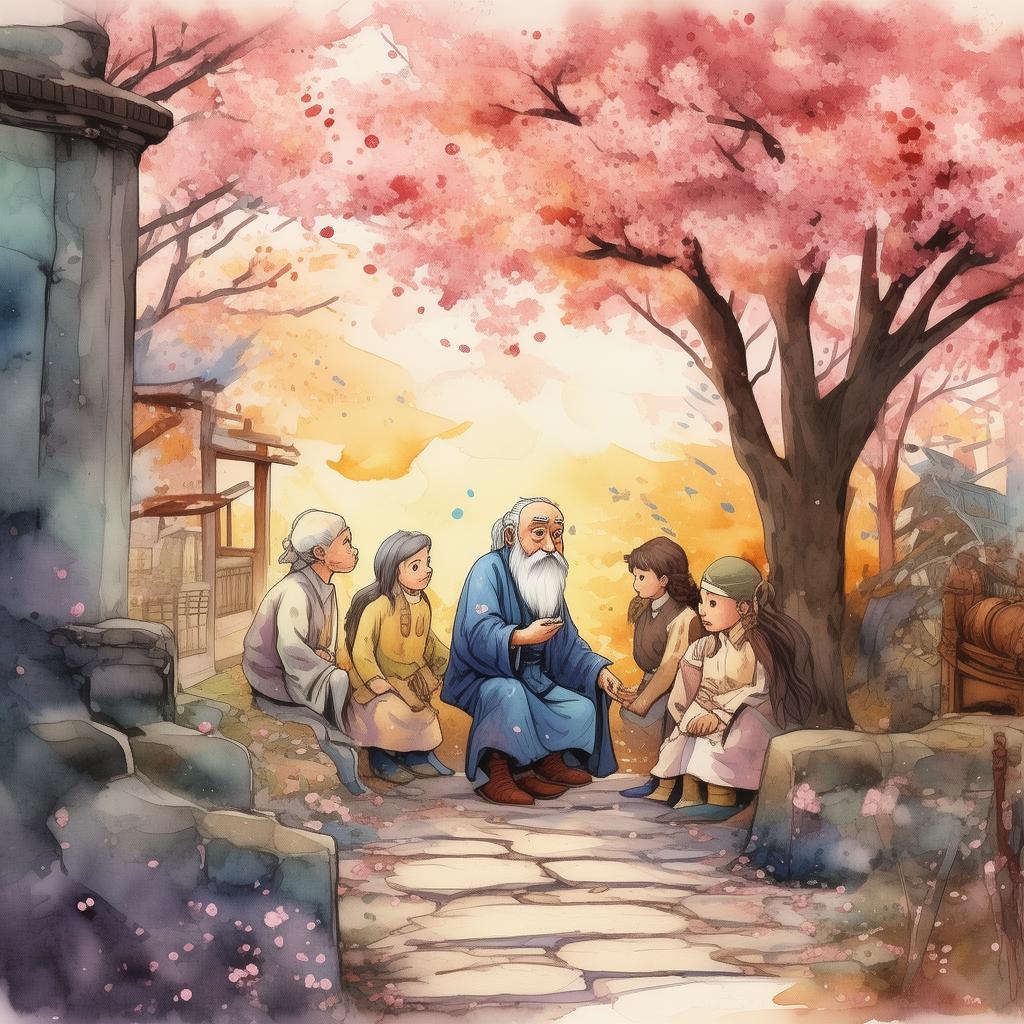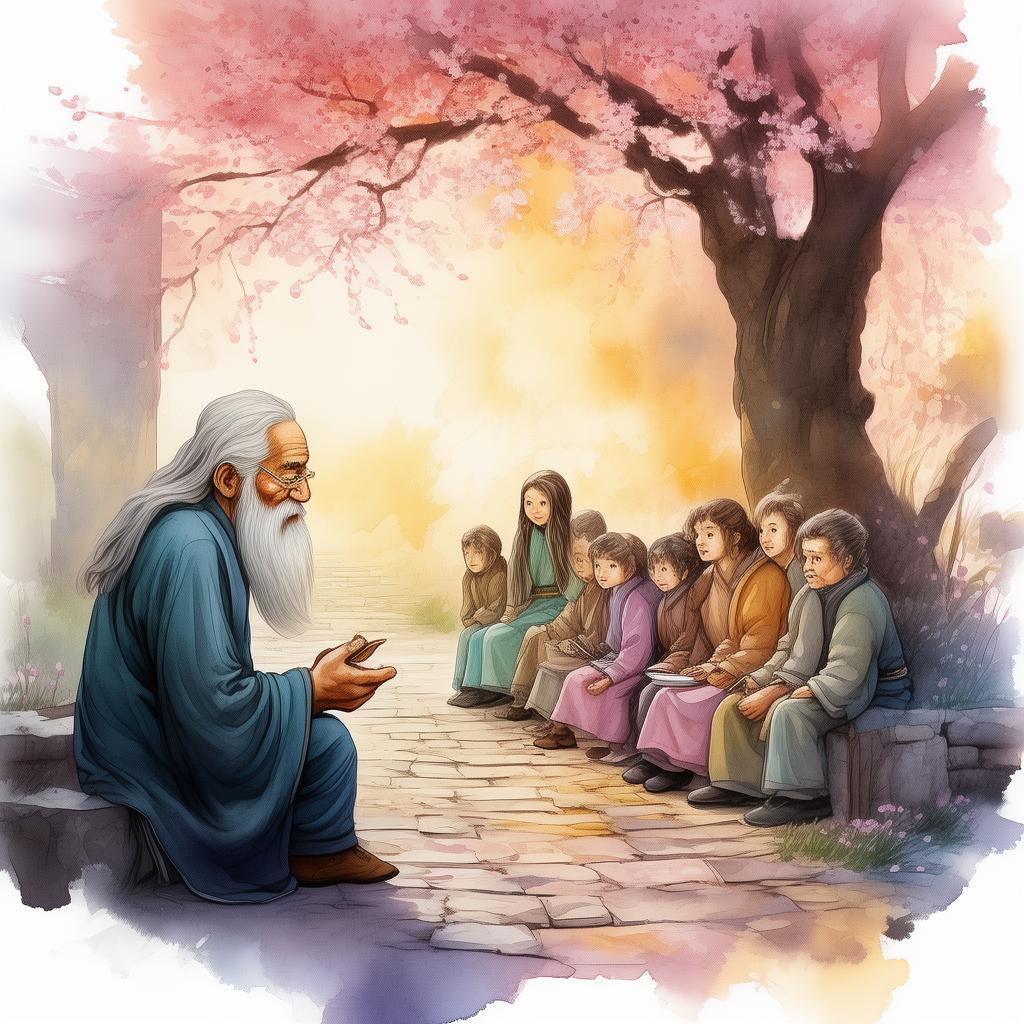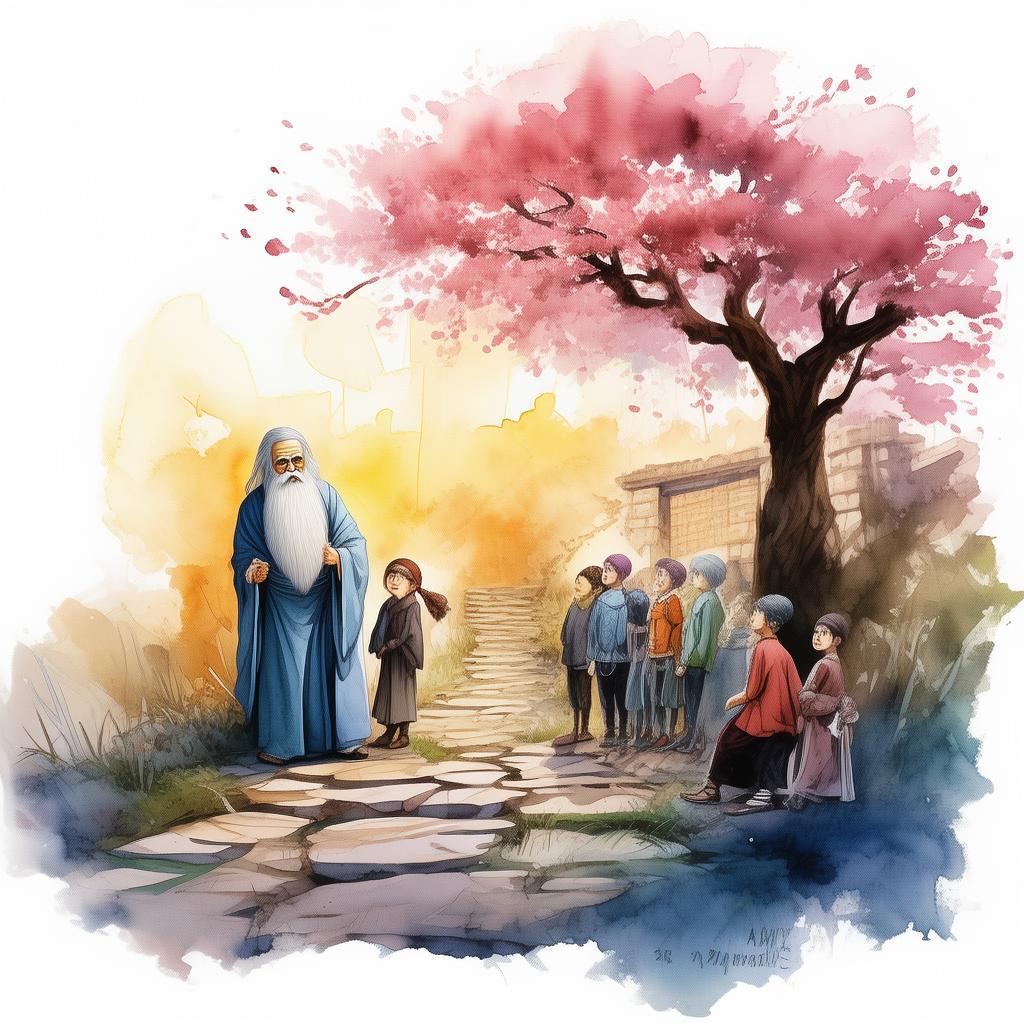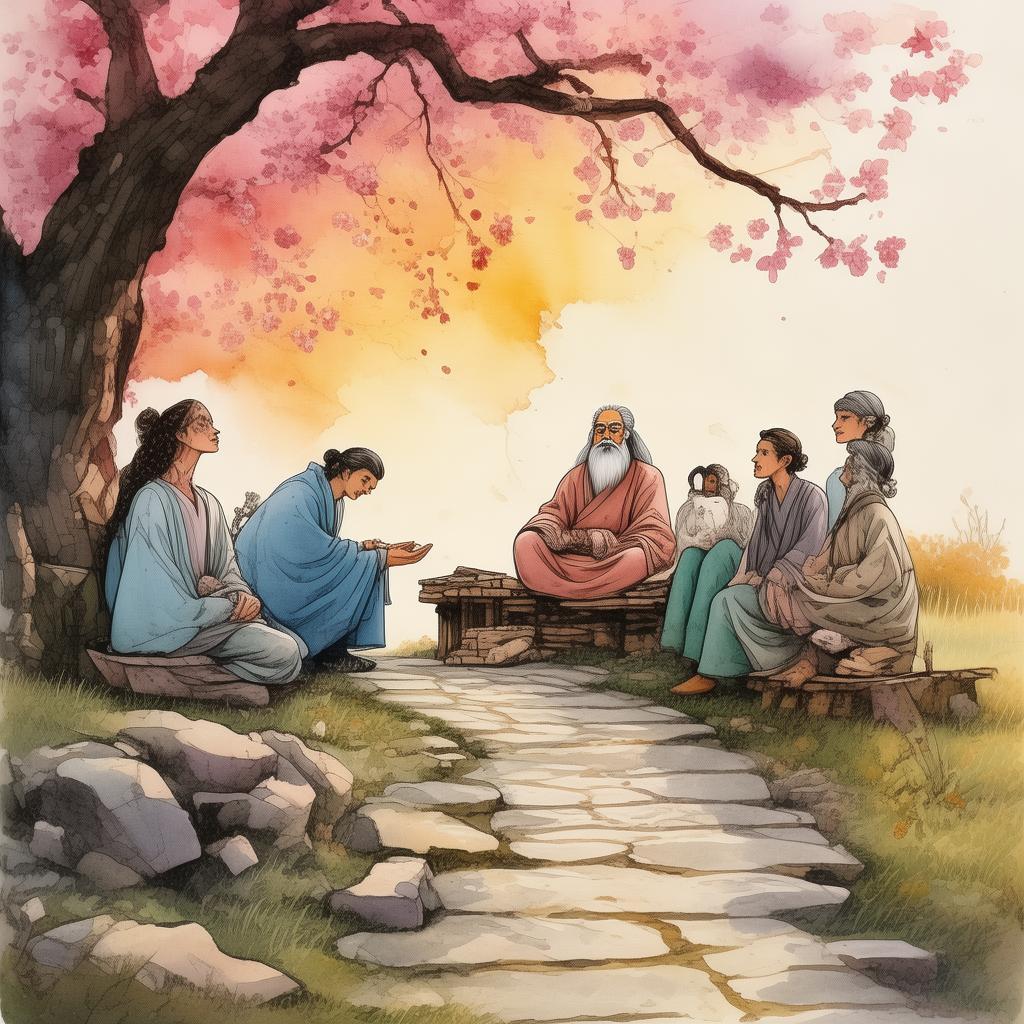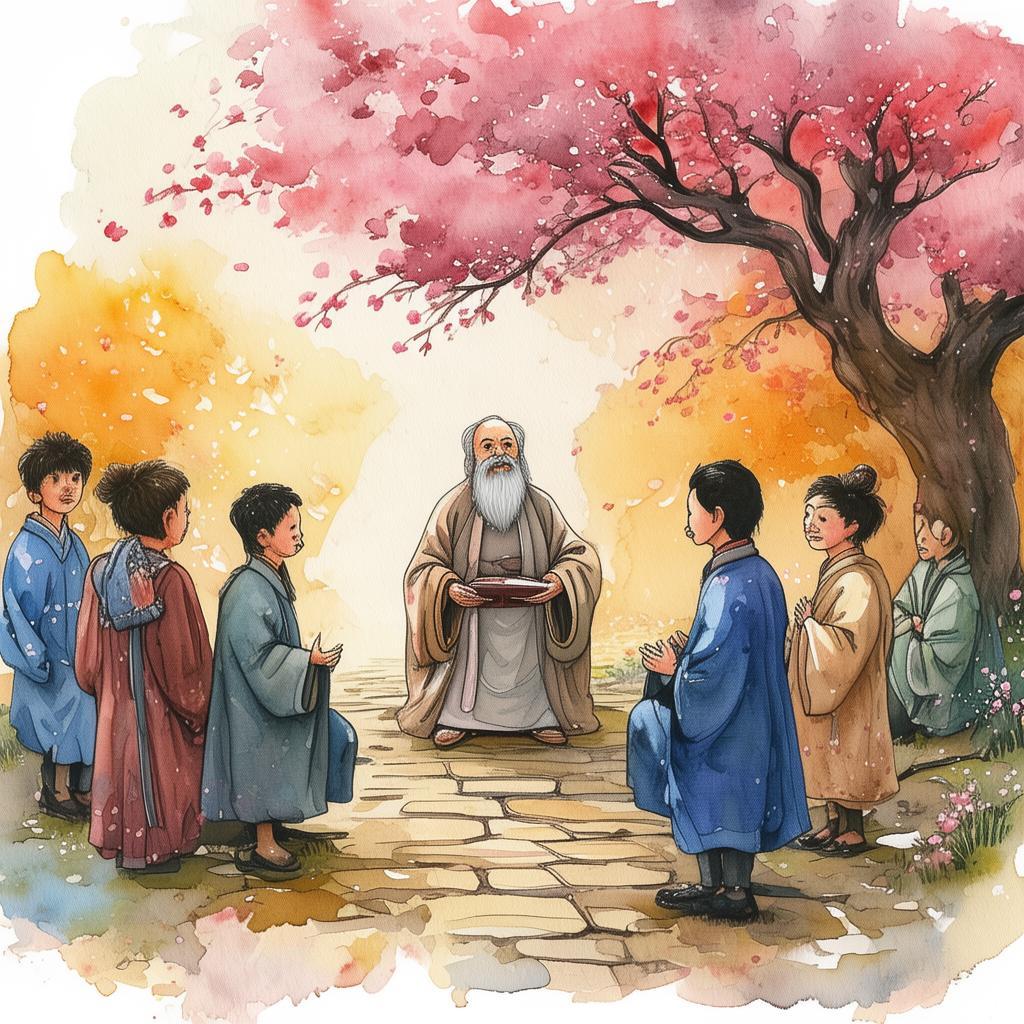Classy Critics and the Paradox of Judgment
In a quaint town nestled between rolling hills and whispering forests, there stood a grand theater known as "The Gilded Stage." It was the epicenter of culture and the epitome of artistic excellence, home to a group of critics known as the Classy Critics. These were not just critics; they were the embodiment of taste, wit, and discernment. Their words carried the weight of truth, and their opinions dictated the fate of every play, novel, and painting that graced the town.
The Classy Critics were four: Mr. Lin, the stern yet well-intentioned art critic; Mrs. Wang, the refined and acerbic theater critic; Mr. Zhang, the erudite and often sarcastic film critic; and Mrs. Li, the gentle yet decisive music critic. Together, they formed an unbreakable alliance, their opinions a beacon for the artistic community.
One rainy evening, as they gathered in their usual haunt, a small, quaint café with the scent of roasted coffee and the clink of porcelain, they were served their usual fare: the latest plays, films, and music, all of which were to be dissected with their usual vigor. However, something was different this time. The plays were lackluster, the films were lackluster, and the music was, well, lackluster.
Mr. Lin, who had always prided himself on his ability to find the beauty in the mundane, found himself struggling to find anything redeeming in the scripts. "This is the worst play I've ever seen," he declared, his face etched with disapproval. Mrs. Wang, who was known for her sharp tongue, couldn't help but snort, "Indeed, a far cry from the masterpieces we used to critique."
Mr. Zhang, his usually dry humor absent, muttered, "I've seen more engaging films in the commercials." And Mrs. Li, whose gentle demeanor was the perfect foil to the others, sighed, "The melodies lack the soul they once had."
As the weeks passed, the trend continued. The quality of the works presented to them seemed to diminish, and their critiques grew harsher. The town was abuzz with rumors of the Classy Critics' newfound cruelty, and their reputation began to wane.
One evening, as they sat around the same table, the conversation turned to their own lives. Mr. Lin mentioned his son's recent struggles in school, Mrs. Wang spoke of her sister's failing marriage, Mr. Zhang recounted his latest health scare, and Mrs. Li confided in them about her aging mother.
As they shared their personal struggles, something remarkable happened. They began to see themselves in the works they were criticizing. The lackluster plays mirrored their own lives, the dull films reflected their own emotions, and the hollow melodies echoed their own inner voids.
The realization struck them like a thunderbolt. The works they were judging were not just pieces of art; they were reflections of their own lives. The Classy Critics had become so focused on the external that they had lost sight of the internal.
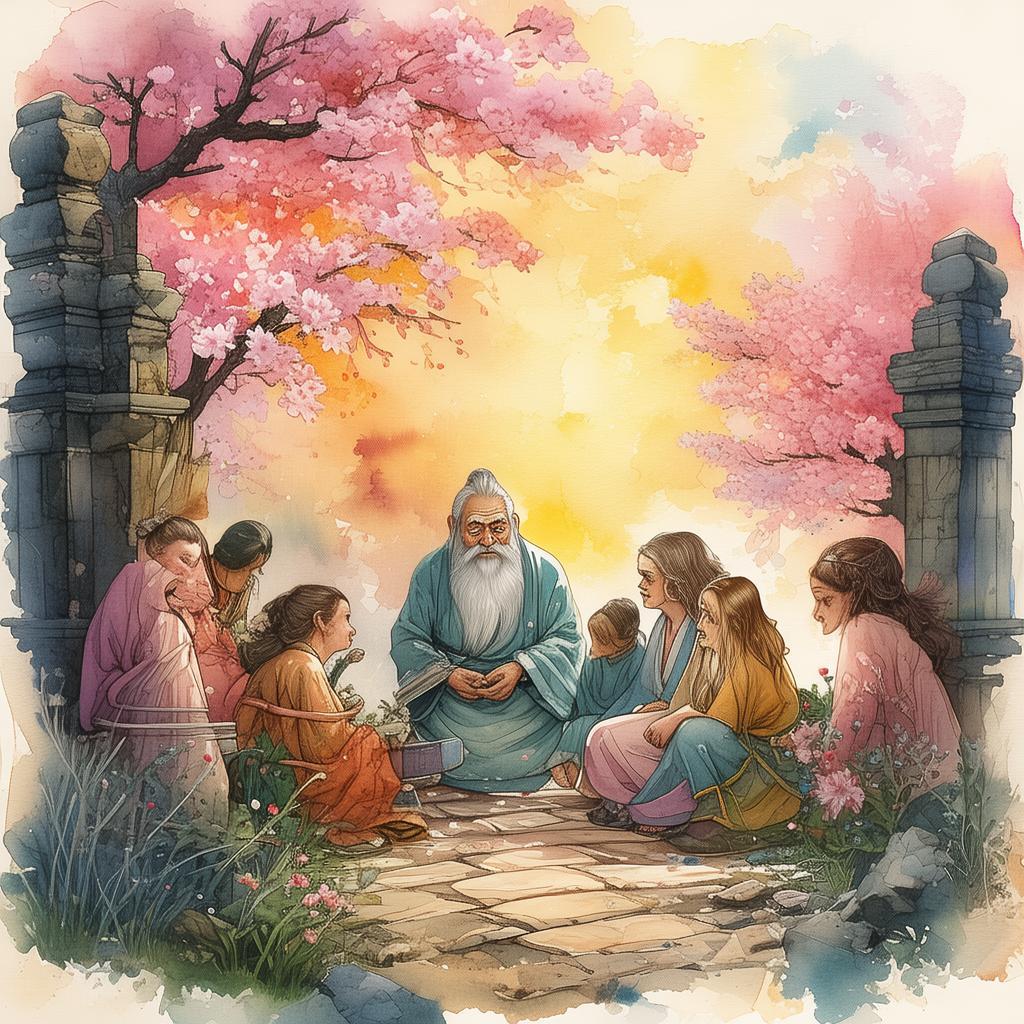
The next morning, they convened in the café, each with a newfound determination. They decided to change their approach, to look beyond the surface and into the essence of the works they were to critique. They began to look for the beauty in the flawed, the hope in the despair, and the passion in the mundane.
Their critiques transformed. Instead of focusing on the shortcomings, they highlighted the strengths, the resilience, and the beauty that lay beneath the surface. The town noticed the change, and soon, the Gilded Stage began to thrive once more.
The Classy Critics learned a valuable lesson that day: that the lens through which one views the world shapes their perception and judgment. They realized that their own lives were a reflection of the world they were judging, and that the true art lay not in the creation of works, but in the appreciation of the human experience.
The story of the Classy Critics spread like wildfire, a tale of transformation and redemption. It became a parable for all who sought to understand the delicate balance between criticism and compassion, the importance of self-reflection, and the power of recognizing one's own humanity in the lives of others.
✨ Original Statement ✨
All articles published on this website (including but not limited to text, images, videos, and other content) are original or authorized for reposting and are protected by relevant laws. Without the explicit written permission of this website, no individual or organization may copy, modify, repost, or use the content for commercial purposes.
If you need to quote or cooperate, please contact this site for authorization. We reserve the right to pursue legal responsibility for any unauthorized use.
Hereby declared.
